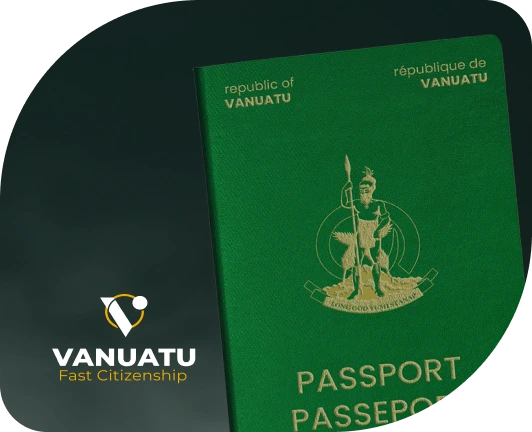A second passport is not just a document but a tool that provides access to new markets, security, freedom of movement, and tax planning. Dual citizenship allows investors to travel, live, and work in two countries without renouncing their homeland.
Our legal company offers full support on the path to obtaining a second citizenship. We will help you understand the intricacies of legislation, choose the most suitable country, prepare the necessary documents, and go through all the stages of the process. With us, you will avoid bureaucratic errors and obtain citizenship in a legal, safe, and confidential manner.
Dual, second, multiple citizenship: Terminology and legal nuances

Dual citizenship refers to a legal status in which a person is simultaneously recognized as a citizen of two countries. Such relationships are formalized through international agreements and reflected in national legislation. A vivid example is citizens who hold citizenship of both France and Canada. Both countries allow dual citizenship, cooperate on issues of consular protection and taxation. At the same time, it is important to understand: if states do not recognize dual citizenship, the possession of a second passport may cause legal conflicts. For example, obligations related to military service or taxes in both jurisdictions.
Second citizenship is a broader term that means a person, in addition to their first citizenship, has obtained another one. In this case, the citizen can use two passports, but for each state, they are considered only its subject. Thus, “second citizenship” exists outside of mutual recognition by states and requires individual analysis in terms of rights and obligations in each country.
Multiple citizenship is the possession of more than two citizenships by a person. Such a status most often arises among descendants of migrants or those who have obtained citizenships on various grounds during their lifetime (by birth, through marriage, investments, etc.).
The legal status of multiple citizenship depends on the national legislation of all the countries whose citizenships a person holds. This can lead to overlapping or conflicting obligations (military service, taxes, bans on working in government bodies, etc.) and requires comprehensive legal support, especially when managing assets and planning relocation.
Official dual citizenship vs. second citizenship: What is the difference?
In legal practice, it is important to distinguish between official dual citizenship and second citizenship without formal recognition. Official dual citizenship exists when an agreement on mutual recognition of citizenship is concluded between two countries. In such cases, a person is recognized as a citizen of both countries simultaneously, with the ability to enjoy the full range of rights in each of them without a conflict of jurisdictions.
In contrast to this, many countries simply do not prohibit their citizens from holding passports of other states but do not officially recognize dual citizenship. For example, Germany may require renunciation of another citizenship during naturalization but turns a blind eye to the actual possession of a second passport in certain situations. This means that a person is legally considered a citizen of only one country for each of them, even if they have multiple documents.
Position of Vanuatu: permission to retain the first citizenship
One of the significant advantages of Vanuatu’s citizenship by investment program is the officially permissible possibility of retaining one’s original citizenship. Unlike countries that require renunciation of previous citizenship upon naturalization, Vanuatu does not demand such a step from new citizens who have obtained a passport under the investment program.
An investor can become a citizen of Vanuatu while retaining the passport of their native country, which is especially important for those who do not wish to lose access to rights, property, or business in their country of origin. Vanuatu’s policy encourages flexibility and international mobility without forcing new citizens to make a tough choice.
Ways to obtain a second citizenship
The possession of a second citizenship opens up a wide range of opportunities for investors and their families: visa-free travel, asset protection, favorable tax regimes, access to better education and healthcare. A second passport can be obtained in various ways, each path having its own characteristics, timelines, and requirements.
By right of birth
Many citizens acquire dual citizenship automatically without submitting applications or undergoing bureaucratic procedures. This is possible if one of the parents holds citizenship of another country or if the child is born in a state that grants citizenship by place of birth (jus soli). For example, in the USA, Canada, and some countries in Latin America, there is a rule granting citizenship to everyone born on the territory of the country, regardless of the parents’ status.
In other states, the principle of jus sanguinis operates — the transfer of citizenship by blood. Sometimes a combination of these rules allows a child to automatically obtain two or even three citizenships. However, such cases are limited by conditions of family origin and are most often applicable only at birth.
Naturalization
One of the most common paths is naturalization, that is, obtaining citizenship after residing in the country for a specified period. Usually, this is 5–10 years, but in some countries, the period can be reduced under certain conditions (marriage, having children, refugee status, etc.).
As a rule, a residence permit, knowledge of the language, integration into society, and no criminal record are required. For example, in Germany, you can apply for citizenship after 8 years of residence, in France — after 5 years, in Portugal — after 5 years, without the obligation of permanent residence. The downside of this path is its duration and the necessity to live primarily in one country. Nevertheless, for those planning long-term relocation, this is a reliable path to obtaining a passport.
Citizenship by investment
For investors wishing to obtain a second passport quickly and legally, economic citizenship remains the optimal option. This is an official government program under which citizenship is granted in exchange for a significant contribution to the country’s economy.
Vanuatu is one of the fastest and most efficient examples: a passport can be obtained in just 1–2 months with an investment starting from $130,000. This allows the investor and their family to acquire a full-fledged document without the need for relocation, exams, or interviews. CBI programs are transparent, legal, and regulated by government authorities. Moreover, a Vanuatu passport provides visa-free access to more than 100 countries worldwide.
Marriage, repatriation, and other grounds
There are also alternative ways to obtain citizenship. One of them is through marriage to a citizen of another country. This method requires proof of the authenticity of the relationship, as well as compliance with a minimum period of cohabitation (usually from 2 to 5 years). For example, in Portugal, spouses of citizens can apply after 3 years.
Another path is repatriation, that is, returning to the historical homeland. For example, citizenship can be granted to descendants of emigrants or those who have ethnic or religious affiliation. Israel, Poland, Hungary, Bulgaria, Romania, and other countries implement such programs. Some states also grant citizenship for special merits (for example, Austria or Malta), but these are exceptions rather than widespread mechanisms.
Advantages of dual citizenship
In many countries around the world, economic citizenship programs provide the opportunity to legally obtain a second passport and use it to protect interests, expand business, and plan for the future.
Freedom of movement
One of the most obvious and sought-after advantages of second citizenship is the expansion of visa-free travel geography. For example, a Vanuatu passport provides visa-free access to more than 100 countries. This is especially important for investors and entrepreneurs who need to quickly move between jurisdictions, close deals, participate in negotiations, and attend conferences. A second passport also simplifies obtaining visas to countries where citizens of the first country face bureaucratic difficulties and restrictions.
Personal and economic security
A second citizenship is often perceived as a backup plan—a guarantee that in the event of political and economic upheavals in one’s home country, a person will have the opportunity to relocate and ensure their family’s safety. Countries like Vanuatu, with neutral status, political stability, and a safe environment, become attractive havens. Moreover, a second passport allows one to quickly leave the country in an emergency, receive consular protection, and take advantage of resident rights in a safe jurisdiction.
Tax planning
Dual citizenship can be a useful tool for legal tax planning. Although obtaining a second passport does not in itself mean changing tax residency, it opens up such an opportunity. For example, Vanuatu does not impose taxes on worldwide income, capital, inheritance, or gifts for non-residents. With the right legal strategy, a second passport can significantly optimize tax obligations.
Advanced capabilities for business, education, and medicine
Dual citizenship provides access to new markets. A second passport can facilitate company registration, opening bank accounts, signing contracts, and participating in international tenders. It also opens new opportunities for children and family members: studying at prestigious foreign universities, obtaining visas without additional obstacles, receiving treatment in clinics with a high level of medical care.
Citizenship inheritance
Another important advantage is the possibility of transferring second citizenship to children. In most programs, the new status can be inheritable. Children automatically gain access to the same opportunities: visa-free travel, asset protection, the right to reside and work in another country. Thus, second citizenship becomes an element of long-term family strategy and a capital passed on to the next generation.
Dual Citizenship of Vanuatu: The Perfect Combination for an Investor
The citizenship-by-investment program in Vanuatu has been in effect since 2017 and is based on legal provisions regulating the granting of citizenship in exchange for a contribution to the National Development Fund. In return for a non-refundable contribution starting from $130,000 (for a single applicant), the investor and their family receive a second passport in just 1–2 months — one of the fastest programs in the world. The entire process is conducted remotely, does not require a visit to the country, language exams, or mandatory residency.
For international investors, Vanuatu offers a whole range of advantages:
- Flexibility: you are not required to renounce the citizenship of your country. This is especially important if the first citizenship provides certain economic or social rights;
- Privacy: information about obtaining citizenship is not subject to public disclosure, which is especially valuable for wealthy clients;
- Global mobility: the Vanuatu passport provides visa-free access to more than 100 countries;
- Absence of taxation: Vanuatu does not impose taxes on worldwide income, inheritance, capital gains, or gifts for non-residents;
- Family protection: the application can include a spouse, children up to 25 years old, and parents over 50 years old.
The passport is issued by the Ministry of Internal Affairs, and the application is processed with the involvement of financial control, law enforcement agencies, and the immigration service.
The absence of residency requirements in Vanuatu to maintain citizenship
Unlike many programs based on naturalization or permanent residency, Vanuatu citizenship is granted for life and without residency requirements. After obtaining a passport, the investor can freely live anywhere in the world while retaining all the benefits of citizenship, including visa-free entry to dozens of countries. There is no need to visit Vanuatu, maintain property, conduct business there, or even register a residential address.
Citizenship is issued by the Ministry of Internal Affairs of Vanuatu and does not require annual renewal, as provided in some other countries. There are also no obligations to pass language or culture exams, which lowers the barriers to obtaining a second passport.
Do you want to gain all the benefits of dual citizenship with a Vanuatu passport?

Our legal team specializes in assisting clients at all stages of obtaining Vanuatu citizenship by investment. We conduct a preliminary assessment of chances, verify the sources of funds, prepare and submit a complete set of documents, including a biography and proof of financial solvency, strictly in accordance with the requirements of the Vanuatu authorities.
We cooperate exclusively with accredited agents, guarantee confidentiality, transaction transparency, and compliance with all legal procedures. In addition, our specialists are ready to assist with opening a foreign bank account, tax planning, and obtaining citizenship for the entire family.
If you want to safely and legally obtain a second passport — contact us right now. We will help you take advantage of all the benefits of dual citizenship with a Vanuatu passport — quickly, efficiently, and with full legal support.

